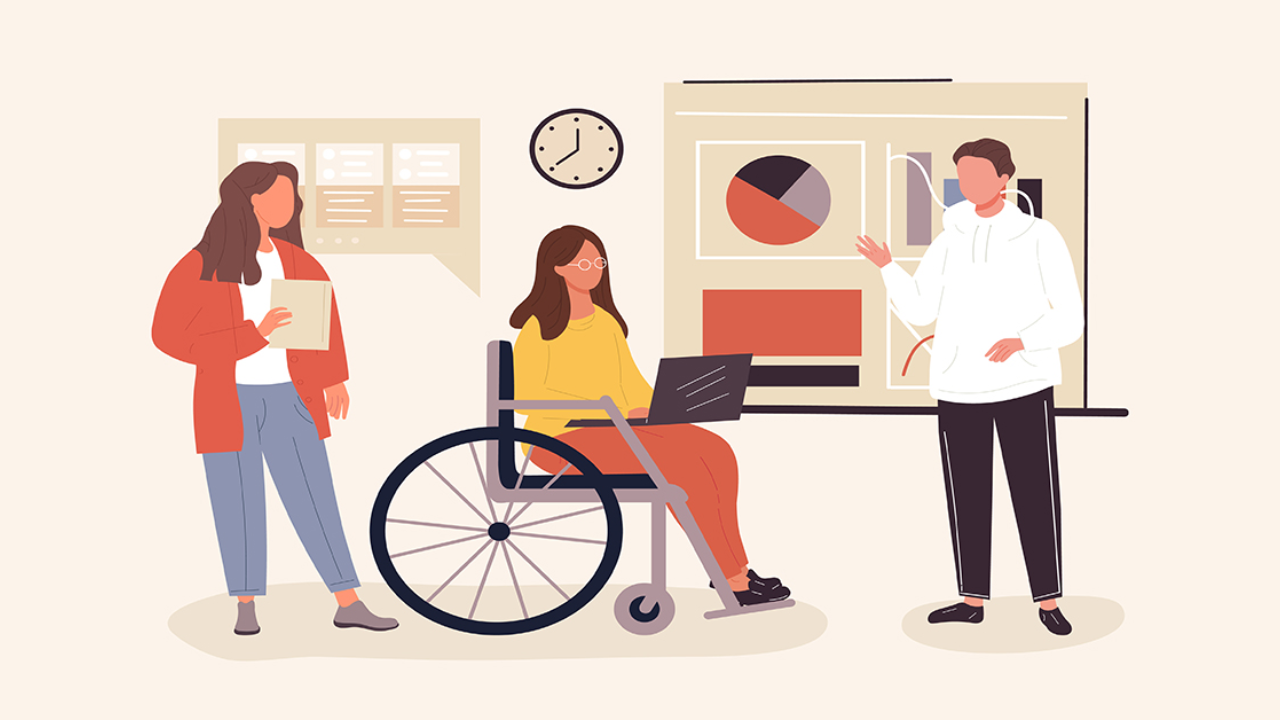Let’s be real, have you ever noticed how some of the sharpest folks at work just never seem to make it into management?
A lot of them happen to be employees with disabilities, which still surprises me. They’ve got mad skills, new ways of seeing stuff, and usually solve problems the rest of us miss altogether.
Still, when it’s time to promote, they’re somehow skipped over. What’s up with that? The violation of disabled employees rights is at play.
I mean, if you sit down with an employment rights lawyer, they can lay out all the strange reasons why those old habits still stick around.
The thing is, the hurdles are often subtle. A few little misunderstandings or just not setting up the right environment.
Honestly? If workplaces fixed this, everyone would win. Teams grow stronger and companies get way better at what they do, simple as that.
Why Must Workplaces Be More Aware Of Disabled Empoyees Rights?
Let’s get this straight: being disabled at work comes with a bunch of extra headaches, and half the time, nobody notices them.
Sure, you see the obvious stuff, but there’s a whole world of quiet obstacles—like people assuming you’re less capable or just not “leadership material.”
That’s where it starts. Until folks actually get what’s going on, nothing changes. We’ve gotta talk about it first.
What Happens When Disabled Employees Rights Are Overlooked?
These are some of the most common yet brutal consequences the disabled employees have to face on a daily basis in their workplace. Let’s take a look at them:
1. Bias And Stereotypes In Promotion Decisions
And here’s the kicker: people love to say promotions are fair, that it’s all down to skills and effort.
In reality? Biases get the last word way too often. There are so many invisible expectations about who should be in charge—and who shouldn’t.
2. Unconscious Bias Shapes Decisions
Most managers don’t wake up thinking, “I’ll ignore talented disabled employees today.”
But, come promotion time, there’s this mental picture they have of a “real” leader—and it doesn’t always include someone who looks or works differently.
Wild, right? All that talent just slips through the cracks because of someone’s narrow idea of what leadership means.
3. Stereotypes About Ability And Ambition
I’ve heard folks say disabled employees just aren’t hungry for more, as if ambition doesn’t come in every form.
What a load of rubbish. Those outdated ideas just block out people who, given the chance, would crush it in a leadership role.
4. Impact On Workplace Culture
If you keep promoting the same type of person, pretty soon everyone knows the score—it’s demoralizing.
The smart, ambitious people start to wonder if it’s even worth trying. Before you know it, trust fizzles out and the office suddenly feels… colder. That stuff spreads fast.
5. The Impact Of Inaccessible Work Environments
Sometimes, it’s not even the people—it’s the space and the tools. You wouldn’t believe how many little things get in the way for disabled employees.
Not being able to get to a meeting room, tripping over problematic software, you name it. That stuff adds up.
6. Physical Barriers Limit Opportunities
Ever tried to squeeze your wheelchair into a room packed with desks? Or felt left out because a meeting took place somewhere you just couldn’t go?
Happens more than most want to admit. Out of sight, out of mind—then, oops, you’re not considered for promotion.
7. Technology And Tools Can Exclude
Let’s talk tech. Software that’s not made with everyone in mind can honestly make your job impossible.
Suddenly, someone’s seen as “slow,” but it’s not their fault. It’s the lousy tools they were handed. Totally unfair, but it keeps happening.
8. Rigid Schedules Reduce Flexibility
Think about it: if someone needs a bit of flexibility—say, a different start time—but your company’s clock is set in stone?
You’re basically shutting out great talent for no good reason. People end up being looked over, just because the policy won’t bend an inch.
9. Missed Potential And Employee Morale
All this boils down to one rotten thing: people start feeling like their hard work means nothing.
The really good ones look elsewhere, and the ones who stay? Well, morale dips for everyone, not just those facing the barriers.
What Are The Different Ways To Protect The Disabled Employees Rights?
Disabled employees have rights that protect them from discrimination and unfair treatment.
It’s the law, no getting around it. Knowing those protections gives people power, and sometimes companies need a reminder.
1. The Role Of The Ada
The Americans with Disabilities Act makes it super clear: no discrimination, and you have to provide reasonable accommodations.
Not much wiggle room there. Employers are supposed to level the playing field.
2. Knowing Your Rights Matters
Seriously, once people know what they’re entitled to, it’s way easier to speak up. No more second-guessing or quietly accepting things that aren’t fair.
Standing up for yourself gets a whole lot simpler when you’ve got the facts behind you.
3. How Lawyers Can Help
And if things get sticky? An employment lawyer who gets disability rights is worth their weight in gold.
They’ll go to bat for you, cut through all the legal nonsense, and push for actual change—sometimes for the whole company, not just you.
4. Encouraging Proactive Compliance
Some companies do more than just tick the boxes. When businesses get ahead of the curve, making their own rules even stricter than the law, they build places where folks want to stick around.
That’s good for the bottom line and, ya know, just being decent to people.
5. Creating An Inclusive Path To Management
Building that path to management for disabled employees doesn’t happen by accident.
It takes actual effort. But the payoff? New ideas, stronger teams, leaders who know life from all angles—what’s not to love?
6. Mentorship And Sponsorship Programs
You know what makes a world of difference? When a senior leader takes someone under their wing.
Those mentor-mentee relationships can change careers—sometimes it just takes one person saying, “I see potential in you,” to open doors nobody else even noticed.
7. Bias Awareness And Training
A bit of bias training never hurt. If managers check their assumptions and look past labels, a lot more deserving folks would get promoted. It’s really that simple.
8. Flexible Accommodations And Support
Whether it’s letting someone work from home, making tech more accessible, or just being a bit more flexible with schedules, every single step counts.
These little tweaks open up a whole lot of hidden talent. Once you remove the hurdles, watch what happens. You will see that people shine.
9. Inclusive Policies And Culture
It’s not enough to have a poster in the break room about “diversity.” You’ve gotta walk the talk.
Celebrate different backgrounds, make policies that actually work, and be open about what leadership looks like, not just talk about it.
10. Encouraging Advocacy And Open Communication
And can we please talk about how important it is for people to hear others out?
Employees should be able to speak up about goals or struggles without feeling like a problem. Honest chats between staff and managers—yeah, that’s where change starts.
The Process Of Protecting Disabled Employees Rights Explained
At the end of the day, leaving disabled employees out of management is just a lose-lose.
Companies miss out, and so do the people who might have changed everything for the better.
The good news? Employment lawyers and some forward-thinking leaders are getting wise to all this.
When workplaces finally get it right, everyone comes out on top.
















